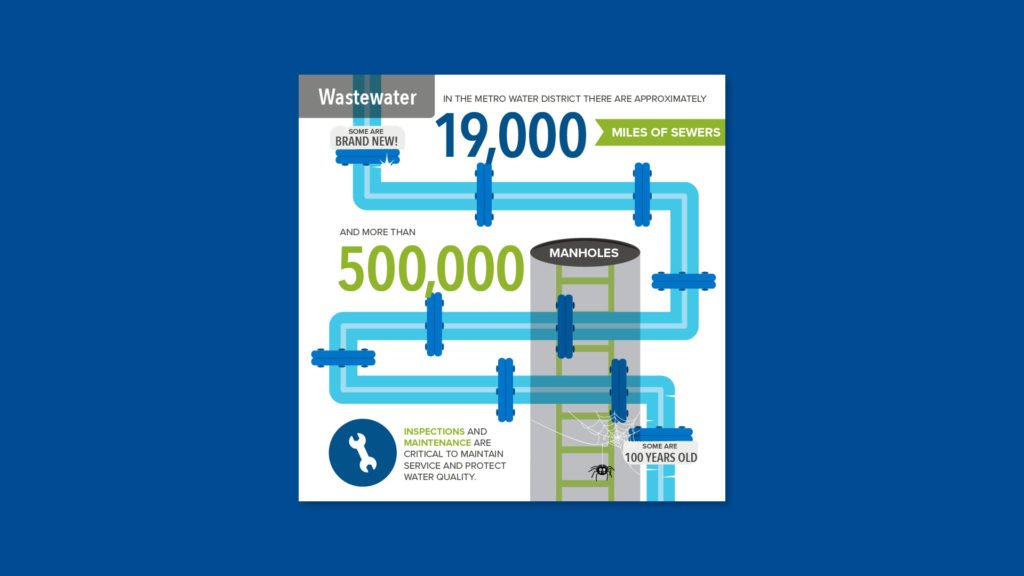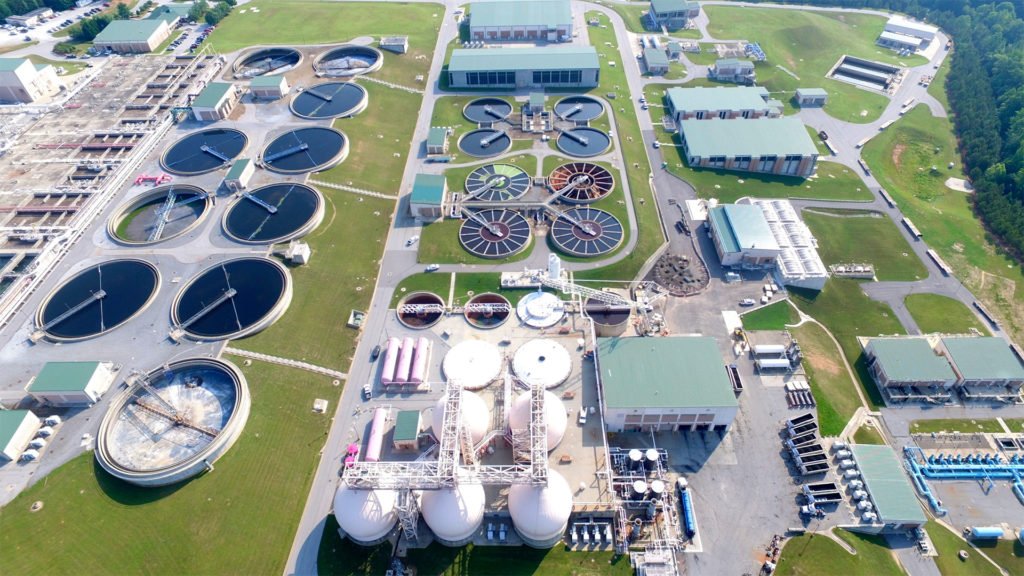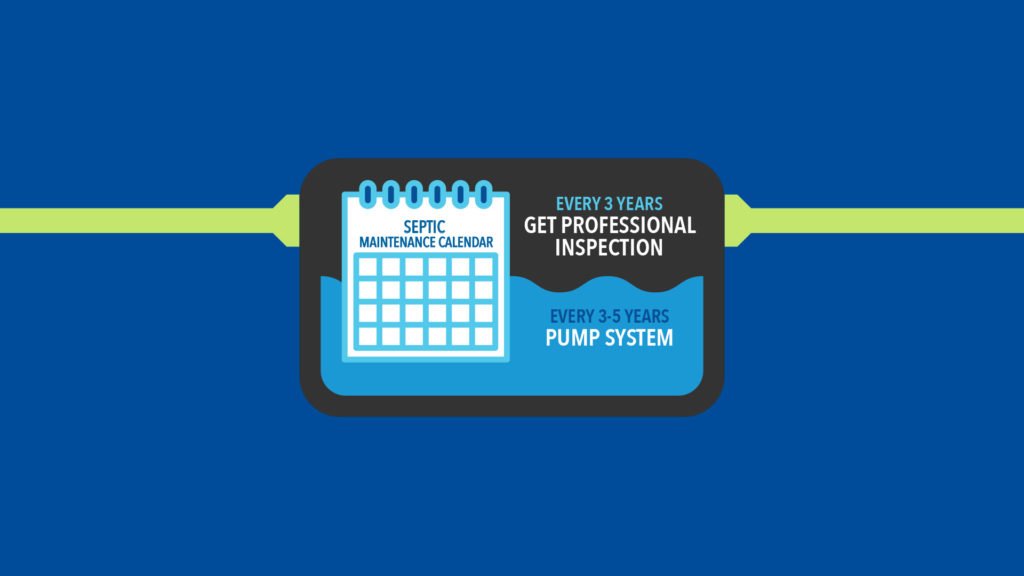What wastewater treatment facilities do we have in our region?
The Metro Water District has 303 wastewater treatment facilities, including 92 publicly owned and 211 privately owned facilities. Delivering wastewater to these facilities are approximately 16,000 miles of sewers and more than 450,000 manholes, all ranging in age from new to more than 100 years old. While the region’s total treatment capacity of 697 million gallons per day is sufficient to meet the 2050 capacity needs of 667 million gallons per day, wastewater treatment availability varies on a local basis and requires thoughtful local master planning.

How do wastewater treatment facilities work?
Wastewater treatment facilities clean water that is often contaminated with human waste, oils, soaps and chemicals through a staged process. The steps taken to remove organic matter, contaminants, bacteria and germs are highly regulated to ensure a safe, high-quality water output that can be returned to nature.
At the F. Wayne Hill Water Resource Center (WRC) in Gwinnett County, wastewater goes through a rigorous 11-step process that returns it to an almost pristine state before sending it to discharge points in the Chattahoochee River and Lake Lanier. In addition to consistently surpassing stringent state permit requirements, it returns water to the source improving the reservoir’s resiliency during periods of drought.
In Clayton County, constructed wetlands help complete the purification process naturally for reclaimed water, offering a truly sustainable water supply. During Georgia’s second-worst drought on record in 2007, Clayton County’s raw water supply reserves remained at 77 percent of capacity. This innovative approach to naturally treat water for reclamation attracts industry attention throughout the U.S. and the world as an example of the innovative water strategies within the Metro Water District.

How do septic systems work to treat wastewater?
One-tenth of all wastewater generated in the Metro Water District is treated by onsite septic systems. In these cases, water passes into a septic tank, where solid materials settle to the bottom and are broken down by bacteria. Liquids are passed onto a drainfield, where waste materials are broken down by bacteria in the soil. Homeowners with septic systems should know that maintenance of the system is important for it to properly function. The solids in the septic tank must be pumped periodically—generally every five years is best. Learn more about septic system maintenance here.
Septic use is declining as more sewer service is made available. Because septic system failures are expensive to correct and harmful to the environment, the Metro Water District works in coordination with County Boards of Health to implement solutions to help better manage onsite systems.

How do our everyday activities affect our wastewater?
The actions of Metro Water District residents can have a significant impact on the quantity and quality of wastewater generated which affects the efficiency and effectiveness of treatment processes. Proper management and disposal of household water can help reduce the negative impact on the environment and public health.
Improper disposal of fats, oils and grease (FOG) has a significant impact on the wastewater system. When FOG is poured down the drain, it can solidify and cause blockages in the pipes, leading to backups and overflows.
Additionally, cleaning wipes, cottonballs, feminine hygiene products, and similar items should be trashed – NOT flushed – as these items do not break down in the water and can also clog pipes and sewer system equipment. These blockages can result in expensive and time-consuming repairs for homeowners and municipalities.
Learn more ways to protect our waterDo not flush cleaning wipes, cottonballs, feminine hygiene products or similar items down the toilet.

